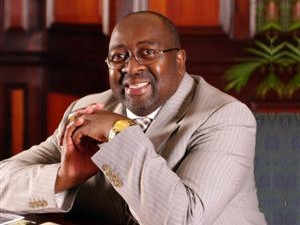
Rural broadband, clarity on the budgets for split ministries, more information on Telkom's new broadband project, and spectrum are all pressing issues finance minister Nhlanhla Nene needs to focus on tomorrow.
This is according to industry observers and comes ahead of Nene's first full budget speech, which will be presented in Parliament tomorrow afternoon. The speech follows a dramatic State of the Nation Address and is likely to be highly-anticipated as the method by which government puts bones on president Jacob Zuma's speech.
Despite the industry's pressing needs, Ovum analyst Richard Hurst expects ICT to "once again take a back seat" as there are more demanding items on the agenda, such as basic infrastructure. He says government's ICT aims do not need massive budget allocations, but require a smarter approach.
ICT commentator Adrian Schofield says ICT will again have a low priority because "government has yet to appreciate the multiplier effect of ICTs enabling greater growth of the economy, better service delivery, better education, etc..."
More broadband
Hurst expects the budget's ICT infrastructure components to focus on Telkom, which was appointed - to much dismay - as the lead company for a R98 billion municipal broadband network, and Broadband Infraco.
Hurst says government needs to clarify Telkom's role to meet market expectations. He also anticipates clarity on budgets for the Department of Communications (DOC), and the Department of Telecommunications and Postal Services.
Last October, these two entities - which were created when the communications department was split in May - were still operating under a combined budget that included all the functions of the former DOC. "I think that some clarity on budget allocation between these two entities, and goals for the year will welcomed by the market," says Hurst.
World Wide Worx MD Arthur Goldstuck would like to see budget being allocated to get full broadband to underserviced areas, over and above what Zuma announced in his annual address. He notes this is an area in which Telkom has abdicated its responsibility.
Zuma's selection of eight rural municipalities - in every province but Gauteng and the Western Cape - will have minimal impact and is "low-hanging fruit," says Goldstuck. "I'd like to see something more visionary."
Goldstuck adds government also needs to reform policy to allow the private sector to get on with the provision of more widespread broadband.
Think bigger
Although Telkom and Broadband Infraco are likely to be Nene's focus, Hurst suggests there should be a wider application of broadband, as government should seek to connect more schools and future generations to ICT services. Already, Gauteng is set to spend R2 billion on making schools paperless, while the Western Cape has set aside nearly R730 million over the next three years to establish ICT infrastructure and e-learning in schools.
At the same time, says Hurst, government should participate in tertiary education initiatives to develop SA's ICT entrepreneurial talent, and to retain this talent and skill set. While the benefits are hard to quantify, because they are often intangible, he notes: "It is of utmost importance that the country begins to develop its skills base, particularly in the field of ICT."
Schofield adds the budget needs to focus on getting the long-stalled digital migration process off the ground so spectrum can be freed up, and government needs to focus more on its IT systems to ensure accountability.
Goldstuck adds tariffs on PC products should be dropped, because this would expand affordability of such products, getting them into many more hands, and also bolster the local manufacturing sector.
Share